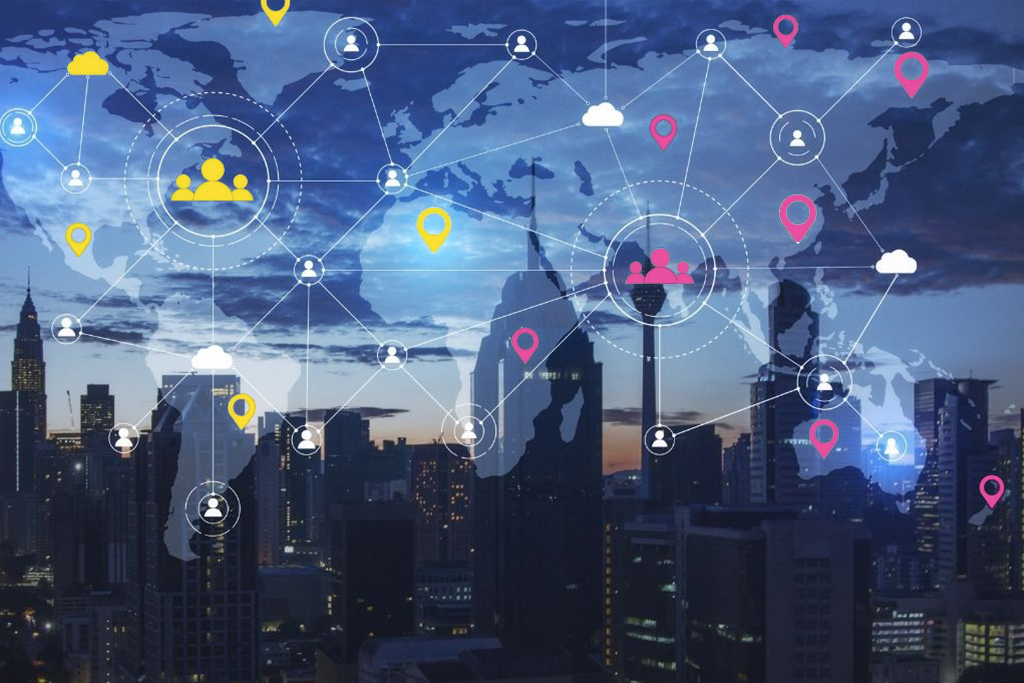Ever since the beginning of civilisation, there has been a gradual transition from a centralised to decentralised society. This shift has never been more prominent, arguably, than it has over the past two decades. And with Covid-19 forcing many businesses to adopt a virtual workforce overnight, the worldwide movement towards decentralisation has gone up a notch.
But what are the disruptions we experience from such a shift? What are the implications for organisations and leaders?
Over the last ten years or so, the move towards decentralisation has never been greater, and in particular the pandemic has shifted the gears as we move to a decentralised way of doing things at record speed.
In the book The Sovereign Individual: Mastering the Transition to the Information Age, the authors bring to light currents of disaster and the potential for prosperity and renewal in the face of radical changes in human history as we move into the next century. Authors Davidson and Rees-Mogg explore the greatest economic and political transition in centuries; the shift from an industrial to an information-based society. This transition, which they refer to as “the fourth stage of human society,” has, and will continue to empower individuals as never before, irrevocably altering the power of government.
It is predicted that the new elite will be “Sovereign Individuals”, who will become more powerful; having their own sovereignties. Those who don’t have their own sovereignties will shop among jurisdictions. Countries, they predict, will evolve to be more like companies. Governments of countries will evolve to offer attractive policies to their inhabitants or ‘customers’, or risk losing them to other more attractive countries. It’s a great read for anyone wanting to get a bird eye view of western civilizations and the strategies we ought to adopt as we move into the next phase of our evolution.
History tells us that there are often historical moments where the shift towards decentralisation is accelerated with a jump-start. Whenever we have experienced these catalysts for change, there has been an undeniable revolution in the way we live and operate. Let’s explore a couple of examples as highlighted in The Sovereign Individual;
Five hundred years ago, in 1517, the small-town monk Martin Luther marched up to the castle church in Wittenberg and nailed his 95 Theses to the door, lighting the flame of the Reformation; the split between the Catholic and Protestant churches. All of a sudden there was a shift from a centralised power; that of the Pope and the Catholic church to a decentralised version of the understanding of the bible. This was the catalyst of a major shift, which rolled out over several decades.
Another shift we see in history is the invention of Guttenburg’s printing press. Prior to this, the power was held in the hands of the minority of social leaders who owned and could transcribe books and knowledge. When the printing press democratised knowledge, there was another steep shift again towards a decentralised society with more power dispersed and held at the individual level.
There’s a similar shift happening at the moment, with the onset and progression of technology. There’s a suggestion that some of the bigger institutions that exist today, like the TGA or the banks, will eventually collapse under their own weight; because the way they operate is rigid; they make their rules, law and bureaucracy largely to protect the status quo, but it only tinkers around the edge. For example, when the banks failed in 2008 the governments bailed them out. Rules were made to ensure there were no new banks which stopped competition. Rules were made to ensure the old way of doing things were protected, rather than allowing systems to change and prosper differently to before. But the balance of power is shifting.
The evolution of technology is bringing greater power to the individual. The emergence of the cyber economy for example has already caused some disruptions to traditional financial institutions. What sort of threat do they pose to the old way of doing things and how will this continue to change? As more money moves online, governments won’t be able to track or control it like they could in the past. They will lose their power over commerce and won’t be able to treat their citizens as a farmer milking cows.
Looking at a recent example of a decentralised industry, the taxi industry has made huge improvements with the emergence of new technology. Uber has revolutionised the industry almost overnight, with a business model that completely flips the industry on it’s head and takes the power away from big taxi companies and into the hands of individuals. The changes have been overwhelmingly positive; not only has the power shifted to an individual level, the industry itself is better regulated and forced to be more accountable. Consumers are more informed and have greater control over their choice, they have the power to review the drivers, know the cost prior to travel etc.
Companies that have not managed to embrace the rapid changes and move with the times, have simply fallen behind. Take the pandemic has seen one of the biggest and quickest shifts to decentralisation on the biggest scale in civilised history. It’s a perfect example of companies having to quickly adopt to a decentralised model of doing things in a sink or swim fashion. Leaders have had to make a dramatic shift in the way they manage their teams. With the benefit of experience and hindsight, we are in a great position to review and evolve how we lead as we shift further along the evolutionary path of existence. I’ll explore this more in my next article.
In the meantime, could you and your leadership team do with one of my tailored workshops? I’ll share my experience and fool-proof leadership techniques with you. Don’t hesitate to get in touch today
